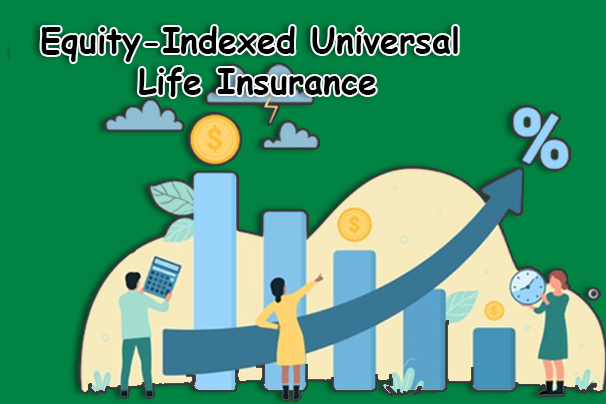Equity-indexed universal life insurance is a permanent life insurance policy that links its accumulation to a stock market index. Compared to other types of insurance policies, this type of permanent life insurance is more complicated. Before putting this strategy into effect, potential investors frequently demand clarification on how it operates.

Just like every universal life insurance policy, this life insurance accumulates cash value, which can be withdrawn or borrowed by the policyholder and invested and used to pay the increased cost of insurance. It removes out-of-pocket premiums if the cash value surpasses the cost of insurance.
How Equity-Indexed Universal Life Insurance Works
In contrast to variable universal life insurance, which allocates policyholders’ cash value across a range of risk profiles, this life insurance enables policyholders to invest their cash value in an equity index account. Without using the cash value to invest in the market, this account pays interest based on a market index. When the market index rises, so will the tax-deferred cash value of your life insurance policy. However, policyholders do not need to select one account to deposit the cash value accumulation.
Advantages and Disadvantages of Equity-Indexed Universal Life Insurance
Without the danger of holding stock market positions, Equity-Indexed Universal life insurance policies offer benefits comparable to those of variable universal life insurance. For example, if the market declines, the cash value of this insurance will not decrease; rather, it will increase. However, the cash value of this policy can be reduced if the premium payments surpass interest, while on the other hand, the participation rate is usually 100%.
This means the policy’s cash value will grow slower than that of the overall market. Moreover, these life insurance policies are a form of modern life insurance and a life insurance drive, which is difficult to understand or explain. To make this easier, investors should mention their special needs and insurability when deciding whether or not to purchase an equity-indexed life insurance policy.
Should I Consider This Life Insurance?
Equity-indexed universal life insurance is a suitable option for those with a controlled risk tolerance seeking flexibility in premiums, amplifying retirement savings, wishing to leave a larger inheritance, and trusting in their investing knowledge. This policy allows customization of premiums and payment using cash value, providing additional budget flexibility.
It also offers tax-deferred investment opportunities for those who have taken out other tax-advantaged retirement options. The larger the death benefit and index-based cash value, the larger the inheritance for dependents. These policies are more hands-on and come with additional risks, making them suitable for those who prefer a hands-on approach and trust in management investments.



